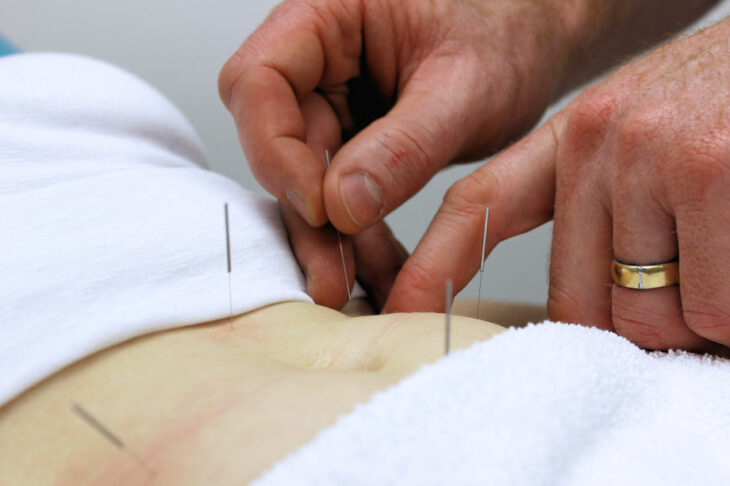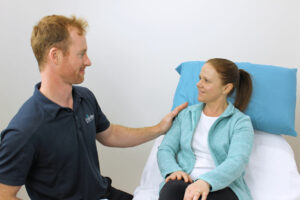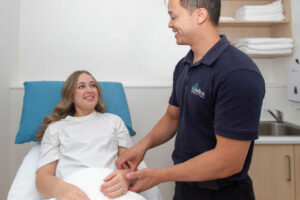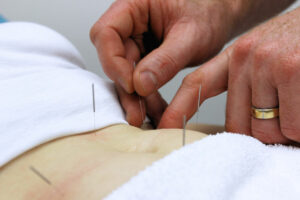Quick Summary
Australia’s fertility rates are currently the lowest on record, indicating a widespread issue with infertility and subfertility. These conditions can be influenced by factors like age, lifestyle, stress, and genetics. Effective treatment options vary from lifestyle adjustments to medical interventions such as In-Vitro Fertilisation (IVF) and acupuncture. Acupuncture is particularly noted for reducing stress and improving hormonal balance, which can significantly enhance reproductive health. Combining IVF with acupuncture may improve success rates by optimizing overall health and hormonal function. For those struggling to conceive, it’s advisable to consult with fertility specialists and consider a comprehensive treatment approach that includes both modern and traditional therapies.
Australia, at the time of writing, has hit rock bottom when it comes to infertility rates, with the lowest fertility rate on record for ALL TIME!
I’m going to rephrase that to help it sink in, as a country, we have never been more infertile than we are right now! If you have been trying to conceive but have not been successful, then you are not alone!
This is SHOCKING and leads to questions in my mind like ‘what is the cause of all this infertility?’ This fact is also insightful as to why there is such a growing interest in treatment options that can help improve fertility outcomes!
If you relate to this, then keep reading because I am going to be delving into the cause of Infertility and how leading-edge treatments can assist improve fertility outcomes!
Infertility & Subfertility
To start with, infertility is the inability to fall pregnant despite continued efforts for a period of 12 months or more. Whilst subfertility is the inability to fall pregnant for less than 12 months.
For those that are trying to fall pregnant but haven’t been able to achieve this, it can be stressful!
Like most healthcare professionals working with fertility on a regular basis, I always recommend that if you are having trouble trying to fall pregnant, don’t wait for 12 months before taking action. If you haven’t fallen pregnant after 6 months of trying, then not much will change over another 6 months. To get the best results, it’s appropriate to reach out for guidance after 6 months especially if you feel uncertain about what is going on for you.
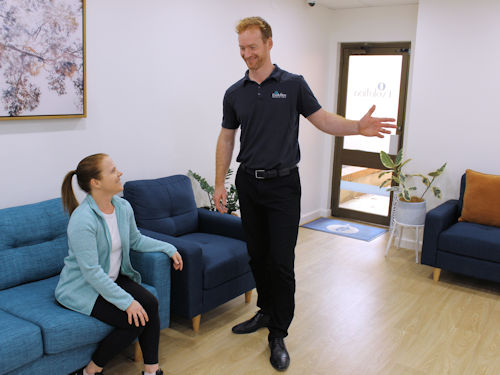
Causes of Infertility/Subfertility
Both men and women are affected by decreased fertility outcomes and studies show that 20% of the time, it comes down to the state of fertility for both partners in a significant fashion. For both men and women, there are some common causes of infertility such as:
- Age – Over time there is an increasing average age of first-time parents which isn’t great for our fertility outcomes
- Weight – It’s well known that increased weight is associated with many health issues, from diabetes to mental health issues and fertility-related health concerns
- Stress – We are increasingly being exposed to more and more pressure and this naturally puts strain on our health, hormonal balance and of course fertility outcomes
- Exposure to toxins – Smoking, alcohol consumption, poor diet and even some medications cause issues with fertility outcomes
- Genetic problems – Which may benefit from appropriate corrective treatment
Whereas according to studies, 80% of the time, decreased fertility is related to either male OR female infertility in an even distribution! When it comes to men, decreased fertility may be related to:
- Low sperm count & abnormal sperm production
- Problems with the tubes that connect to the testes and carry sperm
- Auto-Immune disease causing antibodies to attack sperm
For women, decreased fertility may be related to:
- Irregular or absent menstrual cycle
- Gynaecological conditions such as Poly-Cystic Ovarian Syndrome, Uterine Fibroids or Endometriosis
- Problems with your fallopian tubes
- Pelvic inflammatory disease or a sexually transmitted infection (STI)

The Impact of Decreased Fertility
The impact of all this information is that if you have been trying to conceive and have not been successful, you are not alone despite how you may be feeling.
There’s no denying that struggling with fertility takes its toll on our bodies in both a physical and mental sense. In particular, most couples find that it affects their relationships in different ways which is a massive aspect of our lives.
Most prominently, couples suffering from infertility frequently have issues with their relationships due to the tension of repeatedly trying and failing when trying to fall pregnant. Large studies of couples struggling with infertility share that those couples unsuccessful in their fertility efforts are up to three times more likely to end their relationship.
It can be difficult to deal with friends and family. If you are trying to conceive, there is every chance that your friends and family are also at that same stage of life and celebrating their successes which can be challenging at best and cause more pressure to be placed on trying to conceive.
Beyond that, from financial stresses associated with fertility supplements to obsessing over the monthly cycle of intercourse and failure, the whole situation can be overwhelming and naturally, couples reach out for help to improve their chances of pregnancy.
Treatment Options to Improve Fertility Outcomes
There are many different treatment options available to improve fertility outcomes from lifestyle advice to professional healthcare services backed by scientific research like IVF and Acupuncture.
In-Vitro Fertilisation (IVF)
If you have been trying to conceive, you may have heard of or even commenced trying to fall pregnant with the help of In-Vitro Fertilisation or other Assisted Reproductive Technology (ART).
IVF is the most effective Assisted Reproductive Technologies which is used in order to:
- Regulate a female’s hormones and menstrual cycle to optimise egg development
- Retrieve developed eggs
- Fertilise eggs with sperm and
- Implant fertilised eggs in a uterus
IVF may involve either your eggs and sperm or may also be performed using donor eggs and sperm.
The chances of success if using IVF vary based on your individual cause of infertility and age is the single biggest contributor, with women over 36 years old and older showing a sharp decline in success rate. Over time, with the advancement of Assisted Reproductive technology, IVF success is significantly improving with the average success rate per initiated cycle currently sitting in at 18% in Australia & New Zealand.
Acupuncture has been used for thousands of years to improve overall health and especially to assist with fertility health. Likely you have heard of Acupuncture being used for pain relief or stress management and at times this can play a part in improving fertility outcomes also.
A massive advantage of how Acupuncture works is that it can be used to naturally:
- Decrease Stress & Anxiety
- Stimulates the release of hormones to regulate reproductive hormones
- Improve blood flow to the uterus to assist with embryo implantation
Treatment with Acupuncture to improve fertility occurs over a period of time in order to make changes to overall health. Typically, patients report improvements in signs and symptoms that they previously hadn’t thought of such as decreased headaches, digestive issues, and improved sleep quality and energy levels. The effect of Acupuncture treatment works to improve your overall health to set you up for success with trying to fall pregnant.
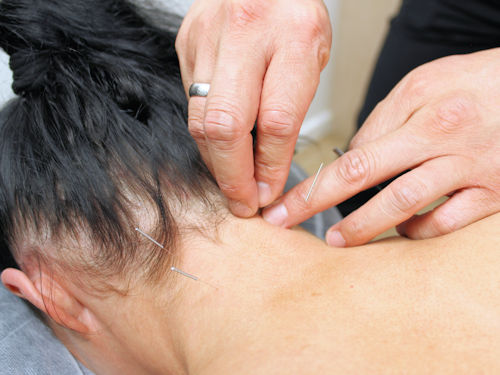
Combining IVF & Acupuncture
Making use of both IVF & Acupuncture at the same time is a worthwhile venture for some couples trying to fall pregnant. We find that couples that look to combine these therapies have typically been trying to fall pregnant for longer periods of time or otherwise are very eager to fall pregnant in a shorter timeframe.
When using Acupuncture in preparation for improving fertility outcomes with IVF, we always recommend a course of treatment of 3 months to have a significant impact on your health so that you will feel less stressed and anxious. Your reproductive hormones will be improved as well as allowing for regulation of reproductive health-whether that be a regular menstrual cycle for females or improved sperm count and motility for males.
That doesn’t mean that Acupuncture can’t be used for shorter amounts of time, only that this is what we recommend to best prepare for an IVF cycle which can be a financially expensive and stressful procedure for some women that are already anxious. Acupuncture may assist with stress and allow your body to function to its capacity whilst undergoing IVF treatment.
In order to get the best results, we always recommend that you speak to both your Acupuncturist and Fertility specialist about your treatment plan so that each party can work together to provide you with the best possible results.
Conclusion
If you have been trying to conceive and have been considering seeking professional help from either an Acupuncturist or Fertility specialist, I hope that this article has helped you understand how Acupuncture & IVF function on their own and also how they can be used together to create the best possible results for you.
If you would like to learn more about how we can help you, feel free to reach out to my team on (02) 4709 6727 and we will be glad to talk to you about your situation and advise how we can help you.

